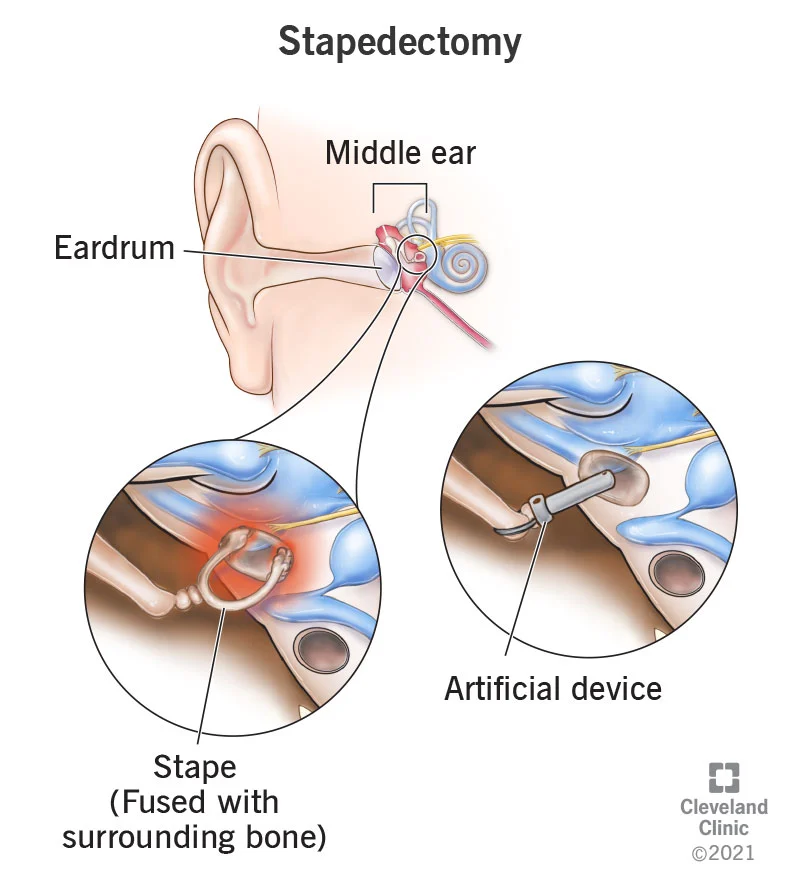
Otosclerosis, a medical condition affecting the middle ear, can cause the stapes, the tiniest bone in both the ear and the human body, to become immobile. This leads to the disruption of the sound transmission process, resulting in hearing loss. To address this issue, a surgical procedure known as stapes surgery or stapedectomy is performed. During this microsurgery, a new sound conduction pathway is created to bypass the fixed stapes, ultimately restoring the patient's hearing. Typically lasting around an hour, this surgery is commonly conducted under general anesthesia, although some surgeons may opt for local anesthesia.
1.Hearing loss due to otosclerosis
2.Otosclerosis
3.Conductive Hearing Loss
4.Stapes Fixation After Ear Trauma